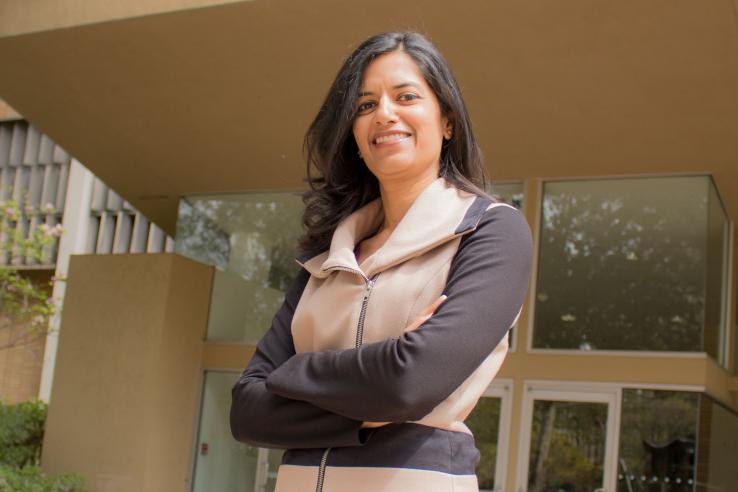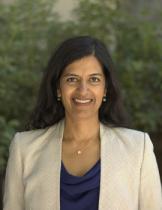Affiliate spotlight: Manisha Shah on her research on adolescent sexual and reproductive health

J-PAL affiliated professor Manisha Shah is an Associate Professor of Public Policy at the UCLA Luskin School of Public Affairs. Her primary research questions and teaching interests lie at the intersection of applied microeconomics, health, and education.
How did you become interested in development economics?
My childhood experiences in developing countries probably had a lot to do with it. I still remember my first trip to India in 1978. I was 5 and it was my first big, international trip. When I think about some of my earliest childhood memories, this is a salient one. I remember the humidity, the scowling men with guns at the airport, the density of people, and seeing poverty all around me. After that initial trip, I would often spend summers in India with my grandparents, and even though I was a reluctant traveler, these visits definitely shaped me.
These trips, as well as the summer I spent in the Andes Mountains of Ecuador when I turned 16, really influenced my decision to study international development. I was part of a program where I spent an entire year training and fundraising in order to spend a summer building latrines in rural towns in the Andes Mountains in Bolivar, Ecuador. In the end, I realized that everyone in these towns already knew how to build and use latrines. It was the finances they were lacking to buy the supplies—and that is what we helped facilitate—paying and transporting cement and latrines from more urban areas to this faraway town in the middle of the mountains.
This was my first time experiencing credit constraints in the field, though I didn’t know what they were technically called back then!
What is one current research project that you're particularly excited about?
I am particularly excited about a randomized evaluation in Tanzania. We are working with adolescents to understand how we might improve female sexual and reproductive health (SRH) outcomes. Family planning and SRH programs tend to focus on women and girls, but most decisions related to sexual behavior involve men and boys, too. Often men and boys influence decisions such as whether a condom is used.
In this evaluation, we are engaging with adolescent males who are sexual partners of the participating girls in the study. In one of our treatment arms, we involve these males in an intervention where they get together and play soccer while talking about SRH, HIV/AIDS, etc. The idea is to test whether female SRH outcomes fare better in communities where we also talk to the adolescent males. We are also doing some work around goal setting with the girls that I am particularly excited about.
This is a large project where we are collaborating with BRAC and a few other implementing partners, so it has been a mammoth undertaking, but I am looking forward to what we might learn from these various interventions.
What is your most memorable story from the field?
This is a tough question as I have so many. The field is where I learn the most and part of what led me to become a development economist is all of these memorable experiences.
The experience that really sticks out in my mind is the first time I piloted a sex worker survey. I was a graduate student from UC Berkeley, spending the summer working on an HIV/AIDS prevention project in Morelos, Mexico. I basically showed up at a local brothel one night asking women if we could pilot our survey with them in between their work obligations. I was really nervous: the music was loud, I had to speak in Spanish, and the men (the clients!) just stared at me. But in the end, I learned so much and truly enjoyed myself. I spent many late nights that summer visiting bars and brothels in order to get our survey right, while meeting so many women with inspiring life stories along the way.
Do you have any advice for early career researchers? What has been particularly valuable advice that you have received from a mentor?
There has been a lot of talk recently about women (and underrepresented minorities) in the economics profession (some of this due to Alice Wu's paper, “Gender Stereotyping in Academia: Evidence from Economics Job Market Rumors Forum”). Related to gender and development, I think a lot about how to balance the demands of being a development economist while having young children. I used to spend a lot of time in the field, but extended fieldwork becomes difficult once there are young children in the picture, especially if there isn't a stay at home spouse (or an economist spouse to travel with).
Before kids, I had this naive idea that my children would travel with me on all these trips; once they arrived, I realized this was more complicated! There is no simple solution. Unlike other specialties in economics in which downloading data is more the norm, the travel requirements can be much greater in the development field. I have struggled with these issues personally over the past few years—and am always learning.
